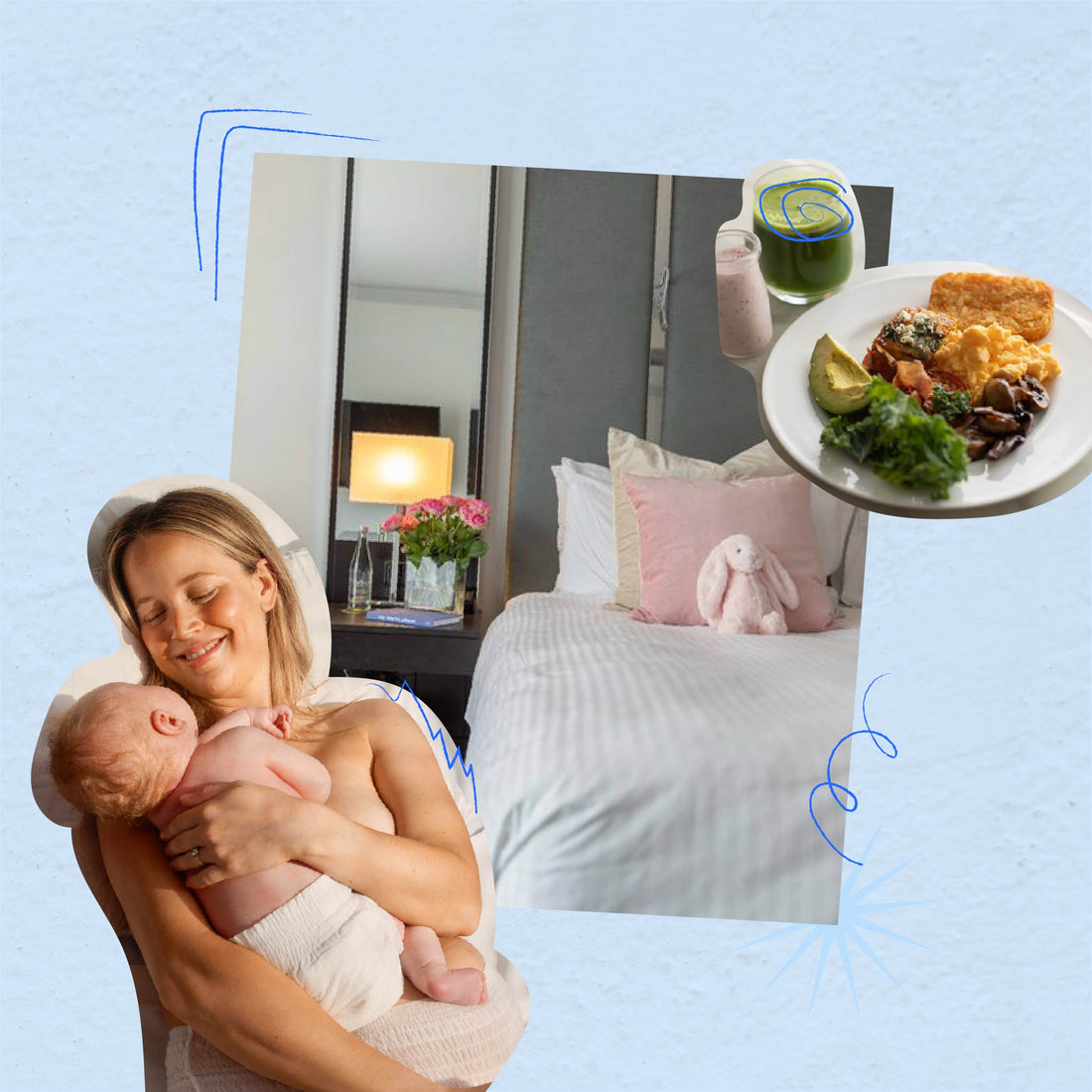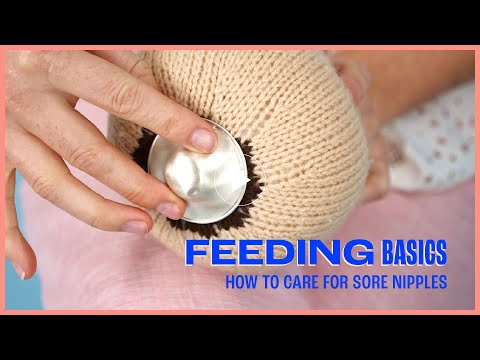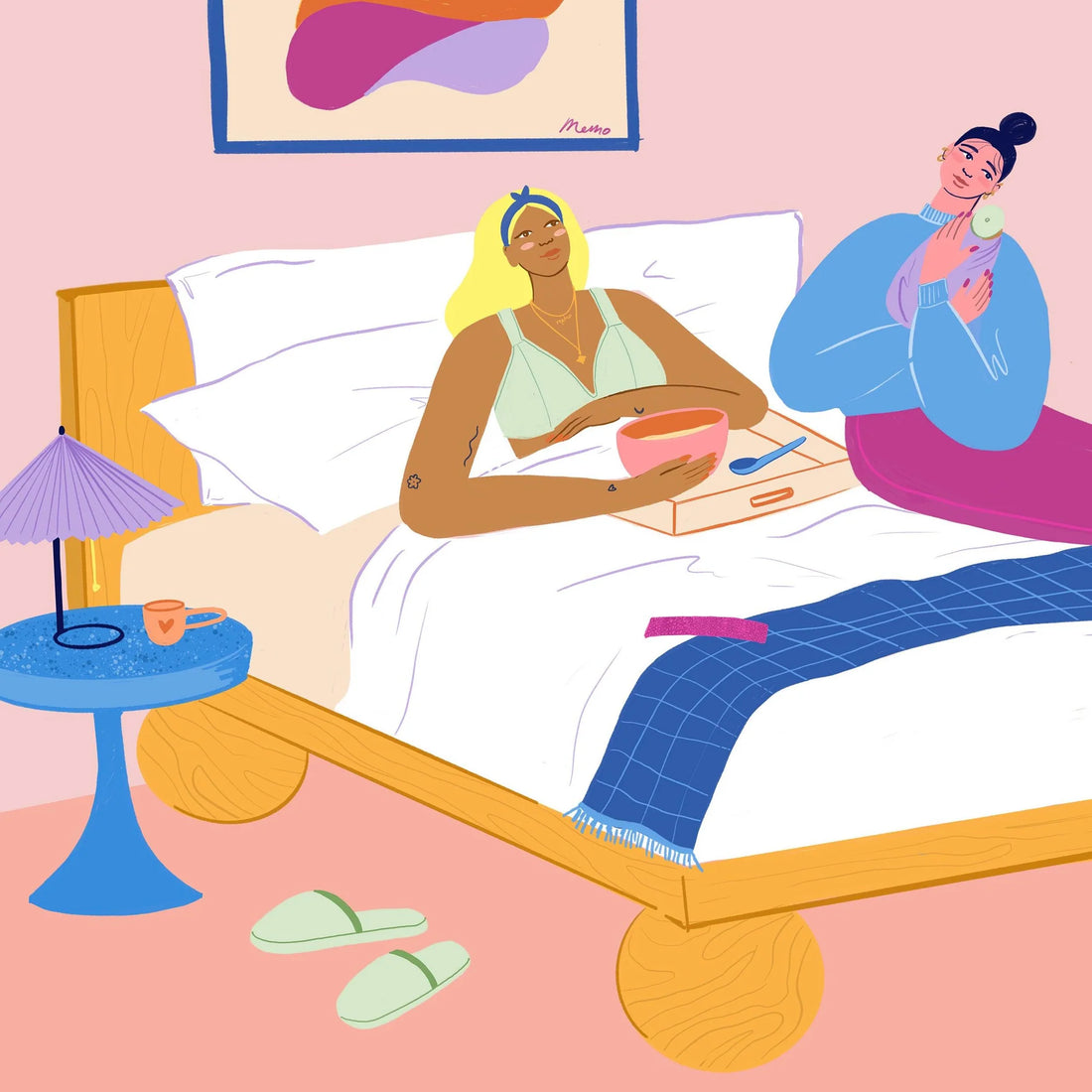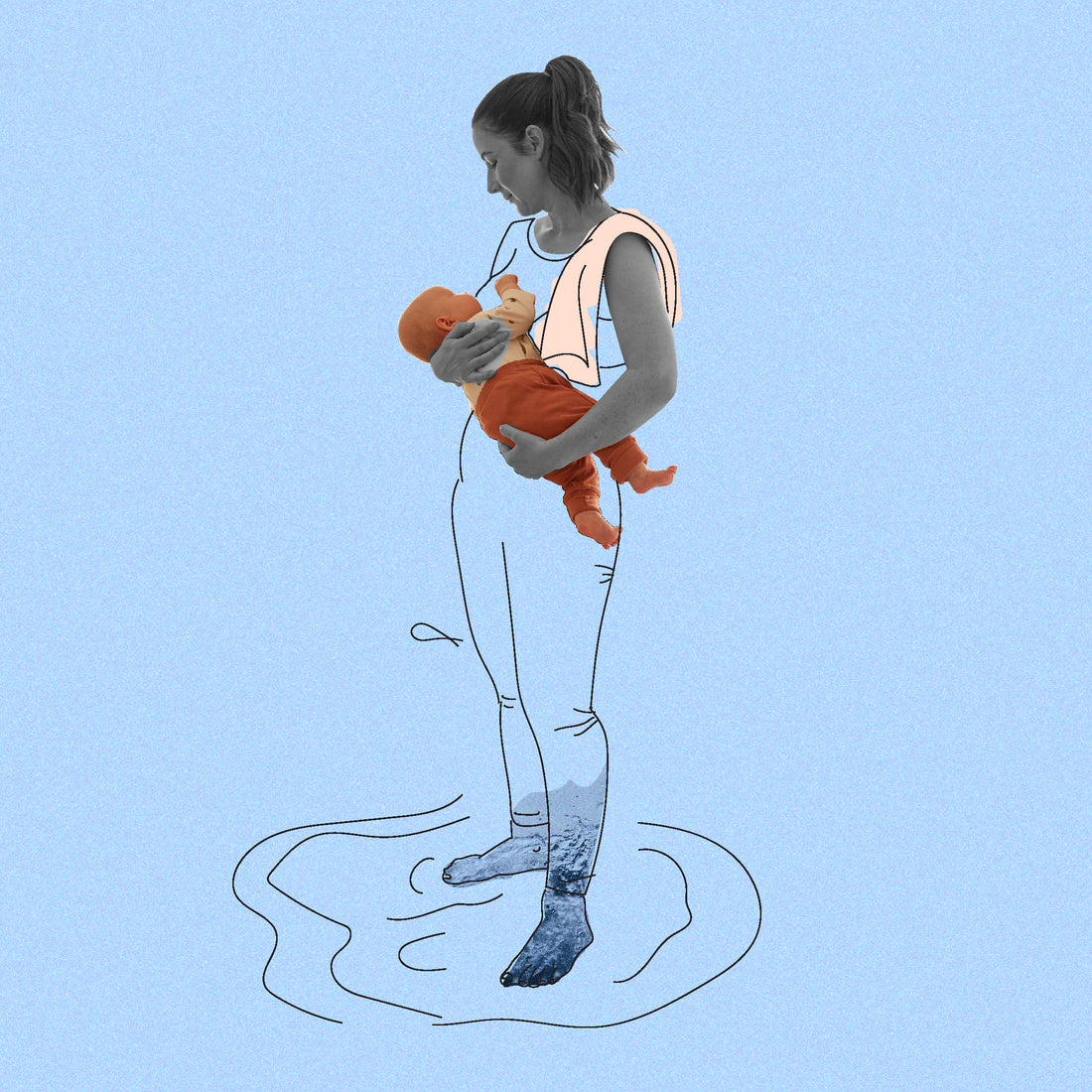

When Avalon Nethery had her daughters, like almost every new mother before her, she felt overwhelmed upon leaving the hospital and in the weeks that followed. She was plagued by postpartum depression (as are 1 in 5 Australian mums) and felt the isolation so common in modern motherhood. “I had postpartum depression, anxiety, intrusive thoughts — and no roadmap for help," says Nethery. It was her husband, sitting with her in the car one day who said, “That experience was terrible, we need to make something better”, that spurred the idea for Borne Postpartum Wellness Hotel.
The elevator pitch of a postpartum hotel is that it bridges the gap between hospital and home. Borne, which opened in early 2024, operates out of rooms at Sydney’s Double Bay Intercontinental Hotel. New mums with babies up to four-months-old (subject to change case-by-case) book for a Monday to Friday stay where they receive 24/7 expert care: midwife, doctor, psychologist and a doula, as well as access to the night nursery, lactation support, daily housekeeping, a spa, and nutritious postpartum meals. The space is also open to your own preferred specialist, be it nail technician or paediatrician, to come in for appointments during your stay.
During the postpartum period, or matrescence, women undergo a seismic shift, physically, emotionally and mentally. It’s a transformation that’s often invisible to the outside world, especially in Western cultures where mothers are expected to bounce back almost immediately. But beneath the surface, bodies are healing, hormones are surging, and identities are being rewritten. For centuries, many Eastern traditions prioritise rest particularly in the first 40 days, believing that they care for the mother in the first 40 days, so she can care for her child for the next 40 years. In those countries, postpartum care practices and traditions are normal (like the maternal grandparents living with the new parents for this time), and postpartum care services, like postpartum hotels and live-in postpartum doulas are widely used. It’s a model that centres the mum, not just the baby, and one we desperately need more of because, “getting on with it” is an internalised coping mechanism that’s failing us. What new mums really need is time, care, and a proper chance to recover, and the appearance of postpartum hotels in Australia is a big step forward.
So, what exactly happens at a postpartum hotel? It’s not a “mum school”, but it’s also not a holiday, it’s a place where mothers are mothered. "We’re not there to tell anybody what they should be doing — we’re there to help amplify their intuition and give them the opportunity to mother the way they'd always imagined." After an initial interview on day one, mums are assigned their care team. "We partner each mum with a team leader based on her needs and parenting style, so she’s getting consistent care with no conflicting advice, no overwhelm." Each mum has their own suite, and there are common areas you can share with other guests, and largely, the experience is catered to the individual, but there are some commonalities, like the first night, “That first night is critical. We get the baby feeding, then take them back to the nursery so mum can sleep. The depletion and need for rest is so deep, it’s the essential start. By Wednesday, after two nights of sleep, mums will want the baby back with them overnight and more through the day, they want to cuddle, walk, bond, because they’re that much more restored.”
Larrisa Leon sees the same thing in her own Melbourne postpartum hotel, Homb, which takes mums with babies up to 12 months old, “They walk in exhausted, anxious, on edge — and within hours, we see guests exhale. That’s the first step in healing." Leon sees Homb, which operates from a converted private home in Elsternwick, as first and foremost, a mental health service, “We can put nice things around, but that’s what we’re doing: giving mums back time that society strips from them the moment they give birth. We’re rebuilding confidence, reconnecting relationships and in some cases, saving marriages.” Leon explains that reactions to postpartum hotels as indulgent really misses the mark (it’s actually quite insulting), “Rest, support, and nourishment aren’t indulgent. They’re essential.” Ofcourse, there is a cost Homb is $1,300 per night (but also offer Supported Stays), and Borne from $2,200 per night, but there is also a cost in Australia for a private OBGYN, birth courses, doulas, pre and postnatal exercise, physios and everything else associated with having a baby. Some is covered by Medicare or private health, some is not. Not everyone can have a postpartum hotel stay in the baby budget, but both Nethery and Leon are hopeful that health care providers will come to the table with rebates. We are, after all, talking about round-the-clock care, “The cost of care is our biggest expense,” says Nethery. “It’s 24/7 expert care. If you tried to do this even at home, the cost would be through the roof.”
Dr Amber Hart, spent over 10 years in women’s and children’s health, observing how the system was failing new mothers who were very much being left to fend for themselves to find support, “I would see families who had spent huge amounts of money seeing many different practitioners, none of whom were working together and by the time they came to me they were more confused than when they started out.”
The need for a purpose-built, multidisciplinary space to deliver coordinated, consistent, evidence-based, holistic care to new families was clear.
Hart created Maternal and Infant Wellbeing Melbourne (MIWM), a space that offers day and two-day stays (with Medicare rebates available). These longer experiences allow Hart and her team to dedicate adequate time to complex feeding, sleep and mental health presentations in the postpartum periods that are so common. “It’s an opportunity for women to spend an entire day (or more) learning, troubleshooting, consolidating skills and building confidence and the results have been magnificent,” says Hart.
“In Australia, we do obstetric care very well, but we really fall down in the postpartum period,” says Hart, referencing hospital stays after delivery becoming shorter and shorter, inconsistent government funded services and the one GP check at 6 weeks postpartum, “It’s far too late, and results in crisis management.”
Spaces like Borne, Homb and MIWM are allowing prevention and early intervention, giving mothers and families the tools and support before there’s a problem: feeding issues and physical recovery bumps, yes, but also depletion, depression, anxiety and burnout. The arrival of these postpartum hotels and purpose-built maternal wellness spaces in Australia signals a shift, slow, but powerful, towards acknowledging the realities of matrescence, and the support that new mothers actually need. These are not indulgences. They’re a long-overdue recognition that recovery takes time, care, and support. Support from friends and family, but also specialists, consultants and doctors. While access is still limited, the hope is clear: that support like this becomes more common, more inclusive, and more widely understood as essential healthcare, not luxury. Because when we care for the mother, we care for the whole family, and that changes everything.













































































































